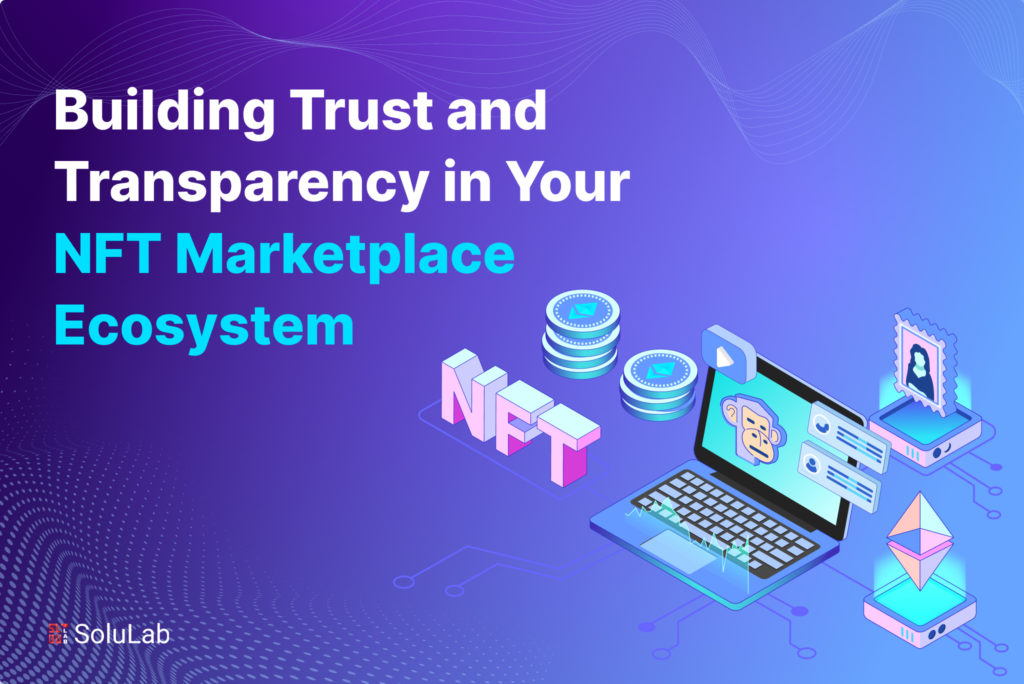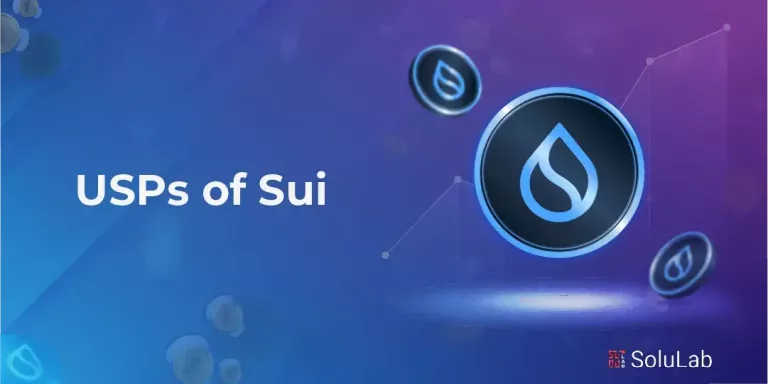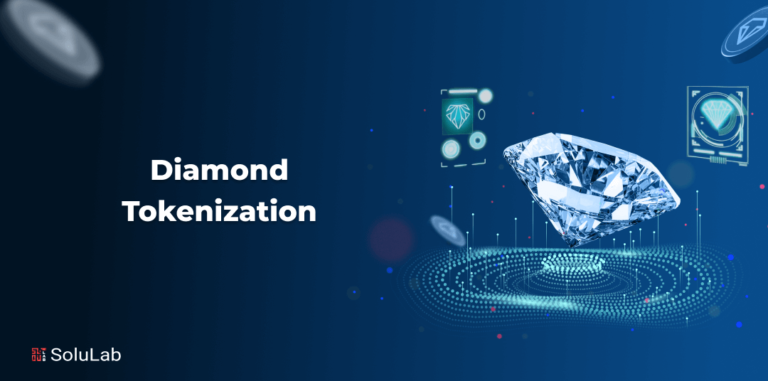
The world of Non-Fungible Tokens (NFTs) has taken the digital landscape by storm, revolutionizing how we perceive ownership and exchange of digital assets. These unique, indivisible tokens, often associated with art, collectibles, virtual real estate, and even in-game items, have created new avenues for creators, investors, and enthusiasts alike.
As the NFT market continues to expand at an unprecedented rate, it has become increasingly evident that trust and transparency are the cornerstones upon which successful NFT marketplaces are built. In a realm where the value of a digital asset can stretch into the millions, establishing trust among buyers, sellers, and creators is paramount.
In this blog, we will delve deep into the intricate web of trust and transparency in the NFT marketplace ecosystem. So, without any further ado, let’s get started!
The Pivotal Role of Trust and Transparency in NFT Marketplace Ecosystem

Trust and transparency are the cornerstones upon which successful NFT (Non-Fungible Token) marketplaces are built. In a rapidly evolving digital landscape where the lines between the physical and virtual worlds are becoming increasingly blurred, establishing trust among buyers, sellers, and creators has become paramount.
Here, we explore why trust and transparency play such a pivotal role in the NFT marketplace ecosystem:
Read Our Blog Also: Everything You Need to Know About Metaverse NFT Marketplace Development
1. Overcoming Skepticism
The concept of owning a digital asset, whether it’s a piece of digital art, a collectible, or virtual real estate, is still relatively new to many. Skepticism abounds, and potential participants need reassurance that their investments are not in vain. Trust and transparency provide this reassurance by demonstrating the legitimacy and authenticity of NFTs.
2. Mitigating Risk
In a marketplace where transactions can involve significant sums of money, trust and transparency are essential for risk mitigation. Buyers need to trust that they will receive the NFT they pay for, while sellers and creators want assurance that they will be compensated fairly. Transparent marketplace policies, smart contract audits, and secure authentication mechanisms help reduce the risk of fraud and disputes.
3. Fostering Community Engagement
NFT marketplaces are not just transactional platforms; they are vibrant communities of artists, collectors, gamers, and investors. These communities thrive on trust and transparency, as they form the foundation of lasting relationships. When participants feel secure and informed, they are more likely to actively engage with and contribute to the marketplace ecosystem.
Have A Look At Our Blog: How To Launch Your Own NFT Marketplace Website in Less Than 2 Days?
4. Building Reputation
In the digital age, reputation is everything. Trust and transparency contribute significantly to an NFT marketplace’s reputation. Marketplaces that consistently uphold these principles are more likely to attract high-quality creators, collectors, and investors, which, in turn, bolsters their standing in the industry.
5. Encouraging Innovation
NFT marketplace trust and transparency foster an environment where innovation can flourish. Creators are more likely to experiment and push the boundaries of what’s possible when they know their intellectual property rights are protected, and they will be compensated fairly for their work. This leads to a vibrant and dynamic marketplace with a diverse range of NFT offerings.
6. Regulatory Compliance
As the NFT marketplace landscape matures, regulatory scrutiny is inevitable. Marketplaces that prioritize trust and transparency are better positioned to navigate the evolving regulatory landscape. They can demonstrate a commitment to compliance, protecting both themselves and their users from legal challenges.
The Significance of Trust in NFT Marketplaces
In the rapidly evolving world of NFTs (Non-Fungible Tokens), trust plays a pivotal role in shaping the success and sustainability of NFT marketplaces. These digital tokens, representing ownership of unique assets, have captured the imagination of creators, collectors, and investors worldwide. However, as the NFT ecosystem continues to expand, establishing trust has become a linchpin for marketplaces.
Read Our Blog: NFT Art for Beginners – How to Make and Sell
A. Why Trust is Crucial for NFT Marketplaces?
In the world of Non-Fungible Tokens (NFTs), trust isn’t just a desirable quality; it’s an absolute necessity. Here’s why trust is the cornerstone of NFT marketplaces:
- Asset Authenticity: Trust is paramount to ensure that the NFTs being sold are genuine and not counterfeit. Buyers need confidence that the digital asset they are acquiring is indeed unique and verifiable.
- Protection from Fraud: The digital realm can be a breeding ground for fraud and scams. Trustworthy NFT marketplaces employ robust security measures to protect users from fraudulent transactions and deceptive practices.
- User Confidence: Trust breeds confidence. When users trust an NFT marketplace, they are more likely to participate actively, which, in turn, drives the growth and vibrancy of the ecosystem.
- Marketplace Integrity: Upholding trust is essential for maintaining the integrity of the marketplace. Transparent, fair, and ethical dealings are the bedrock of reputable NFT marketplace platforms.
- Creator Empowerment: Trust is crucial for creators who rely on NFT marketplaces to protect their intellectual property rights and ensure they are fairly compensated for their work.
- Community Building: NFT marketplaces are more than transactional platforms; they are communities. Trust among participants fosters long-lasting relationships and a sense of belonging.
B. Impact of Trust on User Participation and Investment
Trust and transparency in the NFT marketplace have a profound impact on both user participation and investment. Here’s how it influences these crucial aspects:
- Increased Participation: When users trust the platform, they are more likely to actively participate by buying, selling, and creating NFTs. This increases the overall activity within the marketplace, making it more dynamic and appealing.
- Higher Investment Confidence: Trust instills confidence in investors. They are more willing to allocate significant capital to NFTs when they believe their investments are protected from fraud and counterfeit assets.
- Marketplace Growth: Trust drives the growth of the NFT marketplace ecosystem. As more participants join and transact with confidence, the marketplace becomes a hub for digital asset exchange and innovation.
Know More: How will White-Label NFT Marketplace Development Benefit Your Business?
- Quality Content Creation: Creators are more likely to produce high-quality content when they trust the platform to protect their rights and ensure they receive fair compensation. This benefits both creators and the marketplace.
- Positive Feedback Loop: Trust creates a positive feedback loop. As users see the benefits of a trustworthy marketplace, they become advocates, attracting more participants and further reinforcing trust.
Establishing Trust in Your NFT Marketplace Ecosystem

Building trust in your NFT (Non-Fungible Token) marketplace is not just a goal; it’s a necessity. Trust is the foundation upon which successful NFT ecosystems thrive. Users need to feel confident in the authenticity of the digital assets they’re buying, the fairness of transactions, and the security of their investments. Here are essential steps to establish trust in your NFT marketplace:
1. Robust Authentication Mechanisms
- Two-Factor Authentication (2FA): Implement 2FA for user accounts. This adds an extra layer of security by requiring users to provide a second authentication factor, typically from a mobile app or SMS, in addition to their password.
- KYC (Know Your Customer) Verification: To enhance trust further, consider implementing KYC procedures. This involves verifying the identity of users through documents like government-issued IDs. While it can be a more significant barrier to entry, it can significantly reduce fraudulent activities.
Read Also: Why Should You Start Your Own NFT Marketplace Business?
2. Transparent Marketplace Policies
- Clear Terms and Conditions: Ensure that your marketplace’s terms and conditions are clearly defined and easily accessible to all users. This includes policies related to transactions, fees, refunds, and dispute resolution.
- Detailed Fee Structures: Transparency in fee structures is vital. Users should know how much they will be charged for listing, selling, and withdrawing funds. Avoid hidden fees or unexpected charges.
3. Smart Contract Auditing
- Importance of Secure and Transparent Smart Contracts: NFTs rely on smart contracts, and their security is paramount. Conduct thorough audits of your smart contracts to identify and address vulnerabilities. Users need assurance that the code governing their NFTs is robust and trustworthy.
- Third-Party Audits: Consider hiring third-party audit firms to review your smart contracts. Independent audits add an extra layer of credibility, demonstrating your commitment to security and transparency.
4. User Ratings and Reviews
- Encourage Honest Feedback: Enable a rating and review system for both buyers and sellers. This allows users to share their experiences openly. Encourage honest feedback and ensure that reviews are visible and easily accessible.
- Address User Concerns Promptly: Show users that their concerns are taken seriously. Respond promptly to inquiries and complaints. A proactive customer support team can make a significant difference in building trust.
5. Regularly Communicate Updates
- Platform Updates: Keep users informed about any changes, updates, or improvements to your platform. Transparency in your development process instills confidence that you are actively working to make the platform better.
- Security Alerts: In the event of security breaches or potential threats, communicate openly and swiftly. Provide guidance on how users can protect their assets and what steps you are taking to rectify the situation.
6. Secure Wallet Integration
- Wallet Security: Emphasize the importance of wallet security to your users. Provide guidelines on how to secure their cryptocurrency wallets, including hardware wallet recommendations and best practices for private key management.
- Multi-Signature Wallets: Consider integrating multi-signature wallets for added security, where multiple keys are required to authorize a transaction.
By implementing these strategies, you can establish trust in your NFT marketplace and create an environment where users feel confident, secure, and empowered to participate actively. Trust is a valuable asset in the NFT ecosystem, and its cultivation is essential for the long-term success of your platform.
Future Trends of Trust and Transparency within NFT Marketplace Ecosystem

In the dynamic world of NFT (Non-Fungible Token) marketplaces, trust and transparency are evolving concepts that will continue to shape the industry’s trajectory. As technology advances and the ecosystem matures, several future trends are expected to play a significant role in enhancing trust and transparency within NFT marketplaces:
1. Advanced Smart Contracts
The future of NFT marketplaces will likely feature even more advanced and secure smart contracts. These contracts will not only govern ownership and transactions but also include self-executing agreements that automatically address disputes and conflicts. Advanced smart contracts in NFT Marketplace development solutions will further reduce the need for intermediaries and enhance transparency in transactions.
2. Blockchain Upgrades
Blockchain technology, which underpins NFTs, is continuously evolving. Future blockchain upgrades will focus on scalability, speed, and energy efficiency. These improvements will ensure that NFT marketplaces can handle increased traffic, reduce transaction costs, and have a lower environmental impact, thereby enhancing trust in the technology itself.
Check Out Our Blog: The Role of DAOs and Their Benefits in the NFT Ecosystem
3. Decentralized Identity Verification
Decentralized identity solutions, often based on blockchain technology, will become more prevalent. Users will have control over their personal information and identity verification, reducing the need for centralized KYC processes. This will enhance privacy while maintaining trust and security in NFT transactions.
4. Immutable Provenance
Blockchain’s immutable ledger will continue to be leveraged for provenance tracking. Users will be able to trace the entire history of an NFT, including its creation, ownership changes, and transactions, with timestamped records. Immutable provenance will further protect against fraud and enhance transparency.
5. Real-time Analytics
Advanced analytics and data visualization tools will provide users with real-time insights into the NFT marketplace’s health and performance. This transparency will help users make informed decisions about their investments, fostering trust in the marketplace.
Conclusion
In the ever-evolving world of NFT marketplaces, trust and transparency are the bedrock upon which success and longevity are built. As we’ve explored the significance of trust, the impact it has on user participation and investment, and the strategies to establish it in NFT marketplaces, it’s clear that these principles are non-negotiable. They inspire confidence, foster community, and drive the growth of this exciting ecosystem.
Looking ahead, the future trends we’ve discussed, from advanced smart contracts to decentralized identity verification and sustainability measures, promise to elevate trust and transparency to new heights. These developments are not just beneficial; they are essential for the continued evolution of NFT marketplaces.
At SoluLab, we understand the importance of staying ahead of the curve in the world of NFT marketplace development. Being an NFT marketplace development company, with our expertise in blockchain technology and decentralized applications, we can provide solutions that align with these future trends, helping NFT marketplaces build the trust and transparency necessary for long-term success. Whether it’s implementing advanced smart contracts or creating secure and scalable blockchain solutions, hire skilled NFT developers from SoluLab as it is your partner in navigating the ever-changing landscape of NFT marketplaces. Together, we can shape a future where trust and transparency are not just aspirations but the very foundations of this digital revolution. Partner with SoluLab today and embark on a journey where innovation meets trust in the world of NFT marketplaces.
FAQs
1. What Are NFT Marketplaces, and Why Do They Need Trust and Transparency?
NFT (Non-Fungible Token) marketplaces are platforms where digital assets are bought, sold, and traded. Trust and transparency are crucial because they ensure the authenticity of NFTs, protect users from fraud, and create a secure environment for transactions.
2. How Can I Verify the Authenticity of an NFT in a Marketplace?
To verify the authenticity of an NFT, check for transparent provenance on the blockchain. Look for timestamped records of ownership changes and consider using reputable marketplaces that conduct smart contract audits. Also, read user reviews and ratings to gauge the marketplace’s credibility.
3. How Do NFT Marketplaces Ensure Fairness in Transactions?
NFT marketplaces promote fairness through transparent fee structures and clear terms and conditions. Many platforms also employ decentralized governance mechanisms like DAOs, where users have a say in platform policies, ensuring decisions are made collectively and transparently.
4. Are There Any Legal and Regulatory Considerations for NFT Marketplaces?
Yes, NFT marketplaces must navigate legal and regulatory requirements, including intellectual property rights and tax implications. Compliance with regional and international regulations is essential to maintain trust and transparency in the marketplace.
5. How Can SoluLab Assist in Enhancing Trust and Transparency in NFT Marketplaces?
SoluLab offers expertise in blockchain development solutions and decentralized applications. We can help NFT marketplaces implement advanced smart contracts, ensure secure transactions, and align with future trends in the industry, ultimately enhancing trust and transparency in your platform.






